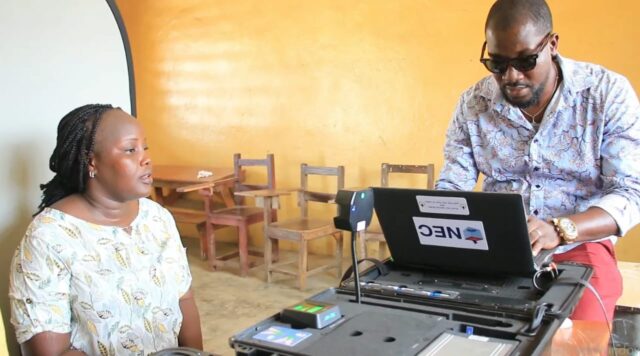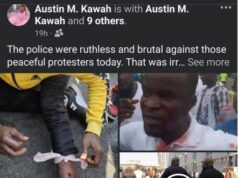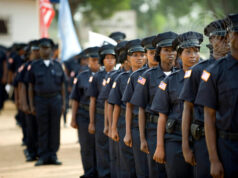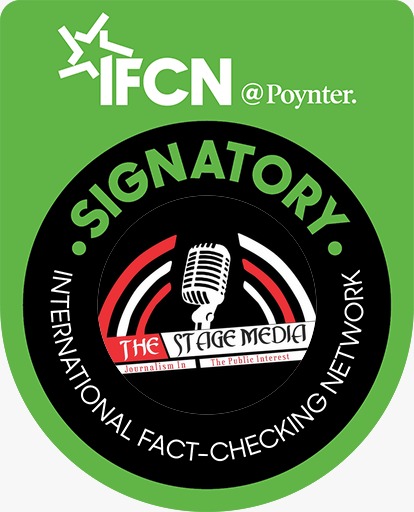
In 2005, Liberia was one of the first countries in West Africa to introduce the manual Optical Mark Recognition (OMR) system in elections.
OMR reads and captures data marked on a particular type of document form. In most instances, this form consists of a bubble or a square filled in as part of a test or survey. This was the system that was used during Liberia’s elections. (https://www.srmfre.com/)
As the country goes to the polls on October 10, 2023, the voter’s registration is being conducted through a biometric voter registration (BVR) system, migrating from the manual Optical Mark Recognition (OMR).
The BVR is the process by which people are enlisted onto a voter registration by submitting information that includes their biometrics such as iris, face, and fingerprints.
The technology is deployed to detect voter fraud, such as duplicate registrations.
The BVR process started on March 20, 2023, and is expected to run in two phases until May 11, 2023.
Phase one of the registration exercise kickstarted on March 20, for twenty-one days, in six of the country’s fifteen counties, including; Bomi, Gbarpolu, Grand Bassa, Grand Cape Mount, Margibi, and Montserrado Counties.
Phase two will run from April 21, 2023, to May 11, 2023, in the remaining nine counties, including Bong, Grand Gedeh, Grand Kru, Lofa, Maryland, Nimba, River Cess, River Gee, and Sinoe Counties.
As the National Election Commission (NEC) takes the BVR to remote villages, many Liberians, including politicians, have expressed fear because there have been a lot of complaints from day one of the registration processes.
The fear of NEC’s inability to conduct the BVR existed before the process because the commission was unprepared to use the introduced system.
However, NEC ignored these calls and started the BVR process. Since the beginning of the BVR in those first counties, citizens have expressed disappointment over the slow procedure.
An extension was requested by both politicians and ordinary citizens but was denied by the NEC Chairperson, who insisted that the process would go on as planned.
Joseph N. Boakai, political leader of the opposition Unity Party, during the signing of the Farmington River Declaration to support peaceful elections in Liberia, spoke about reports of technical problems that were causing delays in the registration process.
Among those problems, Boakai named printers assigned to registration centers going off frequently,
shortage of cards used to produce voter ID cards, and the time it takes the solar panel to generate power from the sun.
He said, “The above factors are leading to a long stay in queues without registration of people who want to register and participate in the determination of the country’s next leader. Some have even hinted that they are tired and may not return to the registration centers.”
“We call on the National Elections Commission to consider extending the registration process in the first six counties. This is intended to make up for the delays and technical problems that have led to many not being able to register. Not doing so will be an act of deliberately disenfranchising Liberian citizens from participating in the elections,” Boakai stressed.
Contrary to Boakai’s accusation, Davidetta Brown-Lassanah, NEC Chairperson, has expressed optimism in the BVR exercise, despite the process’s challenges.
According to Brown-Lassanah, the start of everything new can be challenging.
“As with the introduction of every technology, it is not unusual for glitches to occur at the initial stages. These challenges are not peculiar to Liberia. Indeed, similar cases have been reported in other countries which, despite the initial glitches, ended up having very successful registration drives”, she noted.
The first stage of the process has ended as training to kickstart phase two is in progress.
The preliminary results from Phase One of the Biometric Voter Registration (BVR) show that a total of 1,435,209 (one million four hundred thirty-five thousand two hundred and nine) citizens registered for the October elections, according to the National Elections Commission (NEC).
The NEC Chairperson admitted to some of the challenges raised by opposition politicians and ordinary citizens of Liberia.
Part of the statement read, “Liberians 18 years and above turned out in great numbers, and were registered even with the initial glitches, technical problems and filed challenges which the Commission’s Technical and Administrative Teams resolved on site.”
Former NEC Chairperson James Fromayan said the registration is progressing very slowly because of limited BVR equipment (one to a Registration Center).
“Conducting Voter Registration in phases suggests that the NEC does not have sufficient VR equipment to conduct simultaneous VR nationwide, which should be the case,” said Fomayan
By: Gloria Wleh
This story was produced with the Center for Journalism Innovation and Development (CJID) support.




